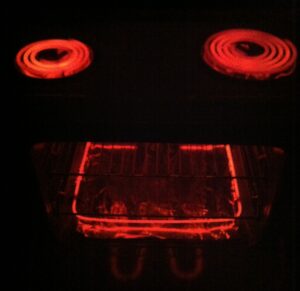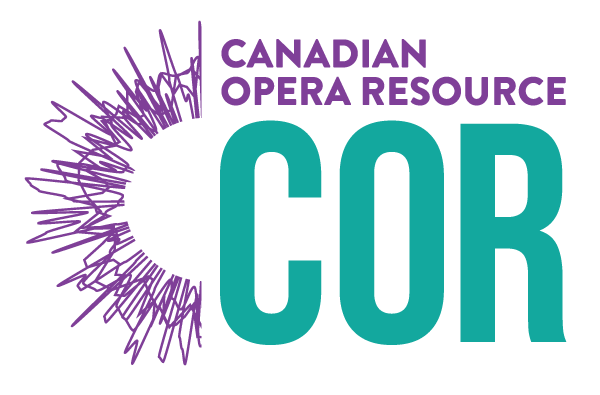Profil de créateur
Biographie

Darren J — born in 1984 and from Montréal — does not write autobiographical texts using the third person. I studied music composition and theory at McGill University, completing my bachelor’s in 2011 and master’s in 2014 under the supervision of Chris Paul Harman and Denys Bouliane. During that time, I was awarded several composer-in-residencies, including for McGill’s Contemporary Music Ensemble (Tick Tock, Bang Bang) as well as the McGill University Chorus (Missa Syllabis), the latter of which went on to win the Godrey Ridout First Prize (vocal category) at the SOCAN Awards for Young Composers in 2011.
In 2008-2009, I collaborated with writer Sheldon Rosen to create music for the play Hansel and Gretel Losing It in the Woods at Ryerson University in Toronto, an experimental typographical play, which incorporated projected animated text onto screens as the plot unfolded. This collaboration led to my introduction to Tapestry Opera founder, Wayne Strongman, who was impressed with the production and invited us both to participate at the company’s Composer-Librettist Laboratory (LibLab) in August 2011.
There, I would collaborate with accomplished Canadian writers/playwrights, including Nick Carpenter (Fight Me), Sharon Bajor (Leaving), Norman Yeung (Ma Ma), and Anusree Roy (The Golden Boy). The Golden Boy became an integral part of my opera Storybook, whose libretto was constructed around it from a collection of my own writings, additional text by Lauren J. Rogener (Still Life), and selections from William Blake’s Songs of Innocence. Storybook premiered with Opera Five in Toronto in late January 2015 to positive reviews. At that year’s SOCAN Awards for Young Composers, it won both the Godrey Ridout First Prize as well as the John Weinzweig Grand Prize for best overall work in the competition.
Simultaneously, I worked on completing my master’s thesis — Tightropes — under the supervision of Denys Bouliane, and written for the now disbanded Ensemble Transmission. After completing my degree, I capitalised on a pair of my other passions: meteorology and aviation, becoming an air traffic controller (ATC), working at both the Windsor, Ontario and Jean Lesage (Québec) International Airports.
The emergence of an autoimmune illness in 2019 brought an early and abrupt end to my ATC career. Since that time, I have been forced to devote much of my limited time and energy resources toward navigating the convoluted labyrinth that is Québec’s public healthcare system, along with its related administrative burdens. The latter portion has regrettably consumed the lion’s share of resources, both in terms of my own rationed time and energy, as well as the gaspillage of public funds which might be otherwise better spent. As the administrative process of becoming disabled winds to its close (yes, you read that correctly), I hope to be able to use the knowledge gained from these experiences, coupled with the skills acquired during my academic and ATC years, to informally assist others recently diagnosed with disabling illnesses untangle the bureaucratic snarls lying in wait, as well as to provide encouragement (and they will need encouragement).
Perhaps unsurprisingly, during this period — mostly as a means of coping with the above challenges, though only in short bursts, and requiring great effort — I returned to composing music after a lengthy absence. I was exceedingly conscious, however, of being afforded a rare luxury: creating art simply for the sake of creating art. My recent output has had a strong focus on the paradoxical nature of writing for the acoustic instruments which comprise a conventional orchestra in the context of our contemporary digital age. Against this backdrop are themes significant to my own life: observations and commentary on the queer experience of the Millennial generation, expressions of grief regarding the struggles of living with a disability, and critiques of the socio-linguistic politics that often dominates Québecois discourse, often at the expense of addressing other challenges faced by its population and culture.
Consequently, I frequently invoke antiquated musical forms (e.g. the Baroque dance suite, theme and variations, sonata form, etc.), which are then manipulated in some way, drawing them forth into the contemporary soundscape.
Recently completed works include:
The first half of Powdered Wigs for Orchestra and Electronics – with appendices derived from dialogues using ChatGPT-4 (2019-2021, rev. 2023). The first section, Binary Abstraction, employs the double-variation form, revealing a phrase of a sarabande at its dramatic conclusion. The accompanying dialogue from ChatGPT-4 discusses how the sarabande was appropriated by European culture sometime during the 16th Century from a source belonging to Mesoamerican Indigenous culture, or somewhere in the Middle East... or both? We simply don’t know; the source of the appropriation has been lost to history. Its binary companion, Marie Antoinette, at Drag Brunch, Serving Mimosas (and Head), deconstructs the scherzo & trio dance form as a study on opulence from a pair of contrasting lenses: one, of the queer experience as curated into pop culture for the palatable consumption by the heteronormative masses; the other, a portrayal of the composer’s perception of a more accurate account of that lived experience (or, at the very least, one aspect of it). The accompanying dialogues also reveal how far AI models have yet to progress with regards to their accuracy in disseminating historical narratives. Furthermore, they highlight just how confidently someone (or some-thing) can be incorrect. Perhaps at present, the language model is no more than a sharp reflection of the culture that created it.
Daddy Serenade (2020): a satirical piece for male-presenting voice, piano, and clarinet. A one-man show venerating toxic masculinity in the golden age of narcissism, set against the peculiar socio-linguistic landscape that is Québec's unique brand of xenophobia. The lyrics are mainly comprised of an email received during my early twenties from a much older man who unabashedly detailed every aspect of my life (diet, schedule, sexuality, etc.) that he had decided must be changed to better suit his desires. It was his ultimatum for the relationship to continue; we had met just three weeks prior. Fwd.: all contacts.
Sequelae (2022, rev. 2023): a theatrical song cycle for baritone and orchestra, using selections from Christopher Uhlig’s poetry collection: Tough Talk. The piece revisits many of the themes explored in Storybook but from a more seasoned perspective. While the Millennial queer experience predominates, there are diversions into soundscapes seemingly unique to Montréal, expressions of grief on life with a disability, an implied interrelationship between all these elements. I consider it the sequel to Storybook.
Works significantly in progress:
The remaining half of Powdered Wigs: a deeper exploration of the themes outlined in its first half, drawn firmly out of the realm of the acoustic and into the digital, then violently blended into homogeneity.
Fault Line: an Opera for Cello and Orchestra (+ Orchestra). A work highly ambitious in scope, exploiting the philosophical tension in writing for orchestral instruments in a contemporary setting and the purely abstract tension inherent within the archaic sonata form. The work examines whether these devices, if expanded to maximalist extent, can carry enough dramatic weight to sustain a work as immersive, cohesive, and grand as Wagnerian opera. It remains conscious throughout as to the apparent absurdity of such a statement among those living headlong into the already fragile and tumultuous 21st Century.

